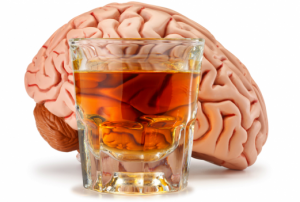Alcohol Withdrawal
Alcohol Withdrawal Summary
Since man has recorded history, the practice of consuming alcoholic beverages has been a part of life. Alcohol consumption has become tradition across lines of culture, religion, gender, age, and race. Whether to celebrate life’s highs, to comfort life’s lows, to relax and refresh following a day’s work, or to socialize during a night with friends, alcohol consumption has played many roles throughout history. But along with these positives, the potential for alcohol abuse and addiction has always been present within the history of man’s relationship with alcohol. While alcoholism is largely a self-diagnosed condition; MedLinePlus, a service of the National Institutes of Health (NIH) offers warning signs for alcoholism and abuse:
“Alcoholism is when you have signs of physical addiction to alcohol and continues to drink, despite problems with physical health, mental health, and social, family, or job responsibilities. Alcohol may control your life and relationships”; and for alcohol abuse: “Alcohol abuse is when your drinking leads to problems, but not physical addiction” (Alcoholism and Alcohol Abuse).
Withdrawal is Alcoholism’s First Hurdle

Alcohol Withdrawal Symptoms
If you find that you, a friend, a co-worker, or a loved one fits this criteria, the first hurdle needed to be cleared is that of the withdrawal from alcohol. Based upon the severity of the grip of alcohol; alcohol withdrawal may seem to be an insurmountable obstacle in recovery, and detoxification from alcohol dependence should always be conducted under the supervision of a qualified professional.
Signs and Symptoms
Symptoms of alcohol withdrawal can range from rather benign (the nagging hangover), to acutely severe (hallucinations, delirium tremens), and even to death. Withdrawal from alcohol is common among heavy drinkers upon cessation of alcohol consumption. According to a first-hand report from Chad A. Asplund M.D., Jacob W. Aaronson D.O., and Hadassah E. Aaronson D.O., clinicians at Dewitt Army Community Hospital in Fort Belvoir, Va.:
Up to 71% of individuals presenting for alcohol detoxification manifest significant symptoms of alcohol withdrawal. Alcohol withdrawal is a clinical syndrome that affects people accustomed to regular alcohol intake who either decrease their alcohol consumption or stop drinking completely.
The report continues to list symptoms common to withdrawal from alcohol. Beginning with the least severe and most common symptoms, the report states:
- Tremor (shakes)
- Craving for alcohol
- Anxiety
- Insomnia
- Vivid dreams
- Agitation
- Irritability
- Loss of appetite
- Vomiting
- Headache
- Sweating
Severe Alcohol Withdrawal Symptoms

Alcohol Impacts the Body, and Brain
Severe symptoms, according to the report, are potentially much more dangerous, and are deserving of in depth description:
- Delirium tremens (DTs): “DTs are much more serious than the “alcohol shakes”—5% of patients who experience DTs die from metabolic complications… DTs, which present within 2 to 4 days of the last drink (and can last up to 3 to 4 days), are characterized by disorientation, persistent visual and auditory hallucinations, agitation and tremulousness, and autonomic signs resulting from the activation of stress-related hormones. These signs include tachycardia [an abnormally rapid heart rate], hypertension, and fevers.”
- Seizures: “Grand mal seizures can occur in up to 25% of alcoholics undergoing withdrawal.4 If alcohol-related seizures do occur, they generally do so within 1 day of cessation of alcohol intake, but can occur up to 5 days later” (Asplund, et.al)
Risk Factors & Complications
There are many factors which determine the severity and duration of symptoms relating to withdrawal from alcohol. Risk factors, according to the report authored by the team at the Dewitt Army Community Hospital include: “…duration of alcohol consumption, the number of lifetime prior detoxifications, prior seizures, prior episodes of DTs, and current intense craving for alcohol” (Asplund, et.al). In order to determine the proper course for alcohol detoxification, the patient will typically undergo a series of tests in order to establish the extent of physical and psychiatric injury brought about by the abuse of alcohol. Tests for potential complications include:
- Gastritis [inflammation of the lining of the stomach]
- Gastrointestinal bleeding
- Liver disease
- Cardiomyopathy [chronic disease of the heart muscle]
- Pancreatitis
- Neurological impairment
- Electrolyte imbalances
- Nutritional deficiencies
While hospitalized, the patient in withdrawal is monitored closely for the following psychiatric concerns: “Unstable mood disorders—delirium, psychosis, severe depression, suicidal or homicidal ideation—while potentially difficult to assess during intoxication, need to be considered and ruled out”(Asplund, et.al).
Diagnosis of Alcohol Withdrawal
While it may appear that most medical professionals are well prepared to deal with the patient obviously suffering through alcohol withdrawal symptoms, the fact is that many who are hospitalized are not accurately diagnosed as being in withdrawal. Disturbingly, according to an article published in 2010 by Jose Maldonado M.D. entitled An Approach to the Patient with Substance Use and Abuse, a poll of physicians clearly illustrates concerns relating to the confidence with which physicians treat the patient with alcohol withdrawal symptoms. Consider from Dr. Maldonado’s report:
Although alcoholism is present in 20% to 50% of hospitalized patients, it is diagnosed only about 5% of the time. A poll of physicians affiliated to the American Medical Association revealed that 71% of them believed they were too ambivalent or not competent to properly treat alcoholic patients.
The Dangers of Withdrawal
Taking into consideration the research and science now readily available, the facts are clear concerning the dangers of alcohol withdrawal. Alcohol withdrawal should never be taken lightly and, in light of Dr. Maldonado’s findings relating to potential failings within the medical community; when considering detoxification from alcohol for yourself or a loved one, take the time necessary to research detox facilities within your area. Use the above information to ask questions of the facility. Armed with the knowledge of the severity and duration of alcohol withdrawal symptoms, make sure your choice of detox facility is prepared and equipped to deal with all of the above symptoms, from benign shakes to the potentially fatal DTs and seizures. When dealing with alcohol withdrawal, your life or the life of a loved one, may well depend upon it.
References:
“Alcoholism and Alcohol Abuse”. MedLinePlus; Trusted Health Information for You. A.D.A.M., 20 Mar. 2011. Retrieved from: http://www.nlm.nih.gov/medlineplus/ency/article/000944.htm
Asplund, Chad A. M.D., Aaronson, Jacob W. D.O.., Aaronson, Hadassah E. D.O. “3 Regimens for Alcohol Withdrawal and Detoxification”. The Journal of Family Practice. The Journal of Family Practice, July 2004. Retrieved from: http://www.jfponline.com/Pages.asp?AID=1730
Maldonado, Jose R. M.D. “An Approach to the Patient with Substance Use and Abuse”. Stanford School of Medicine. Elsevier Inc. Nov 2010. 3. Web: Retrieved from: http://psychiatry.stanford.edu/Psychosomatic/Maldonado%2710-Substance%20Abuse%20Management-Med%20Clin%20NA%2010%2710.pdf